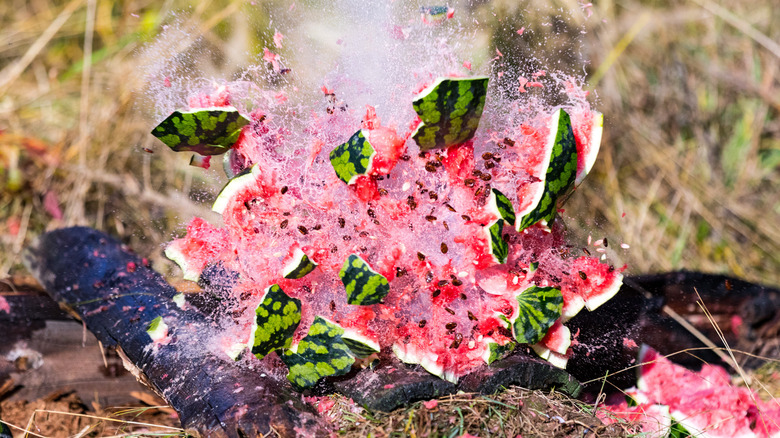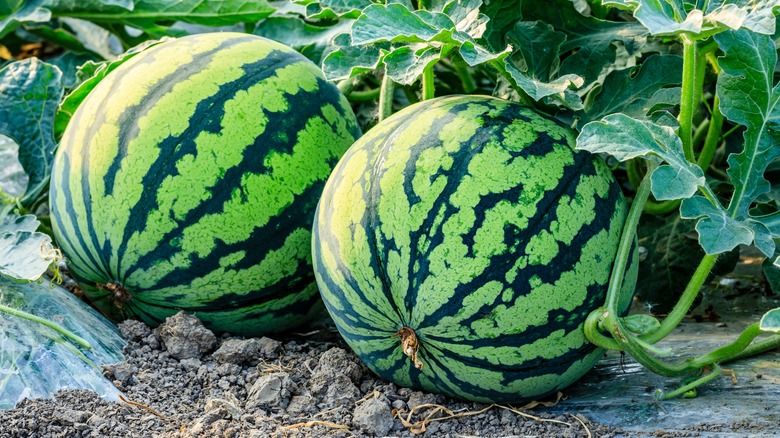The Reason Watermelons Can Foam, Crack, And Even Explode
Ever had a perfectly normal-looking watermelon explode on you out of nowhere? While the most famous case of an exploding watermelon is perhaps the 2016 BuzzFeed rubber band stunt, unintentional melon explosions aren't unheard of. The high sugar and water content inside watermelons makes them especially susceptible to fermentation in high temperatures, which produces a ton of carbon dioxide inside the shell. And not unlike carbonated drinks, this can lead to a lot of cracking, foaming, and just plain blowing up like an over-shaken Pepsi.
Of course, there needs to be bacteria present to ferment anything to begin with. A potentially explosive watermelon is usually a slightly damaged one, where the rind has been compromised just enough to let some bacteria in. Combine that with hot summer temperatures, and boom goes the melon. To avoid potential injury and a guaranteed mess, always check a watermelon for warning signs of damage or spoilage before cutting it open. If you see any cracks or foam spilling out of it, treat it like the ticking time bomb it is and dispose of it as carefully as possible.
Other reasons why watermelons explode
One of the known causes of compromised watermelon rinds — and subsequent fermentation-related detonations — is an infestation of bacterial fruit blotch (via the University of Missouri). While this disease only affects the rind and usually doesn't damage the interior, more severe cases can damage the shell enough to cause significant spoilage. Thankfully, you can usually spot these cases by a foaming crack on the surface.
Another common cause of explosions has to do with the growing conditions. Overwatering due to either agricultural oversight or weather conditions can cause the watermelon to soak up too much water. If the internal pressure is exacerbated by a subsequent drought — which usually hardens the rind so it can't flex to accommodate the inner swelling — and hot temperatures, it's not unlikely you've got a watermelon bomb without any fermentation or carbon dioxide involved.
Last but not least, the most unlikely reason for exploding watermelons: a literal exploding watermelon gene. According to experts, the gene evolved as a means to expel seeds when ripe and is still present in many heirloom varieties (via How Stuff Works). The next time you're picking up an heirloom watermelon for whatever reason, you might want to check with the breeder whether you're at risk of getting a faceful of melon when you take it home.

